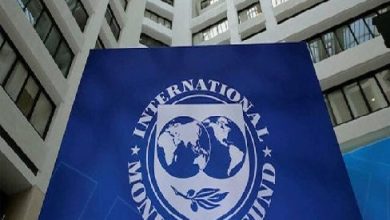World Bank Retains Nigeria’s 2025 Growth Forecast at 3.6% Amid Global Economic Slowdown
The World Bank has upheld Nigeria’s 2025 growth forecast at 3.6 percent, defying global economic slowdown driven by trade disruptions.
Financial services, telecom, and a recovering transport sector continue to power Nigeria’s steady rise amid global volatility.
Despite a gloomy global economic outlook fueled by intensifying trade disputes and widespread uncertainty, the World Bank has maintained its economic growth forecast for Nigeria at 3.6 percent in 2025. This was revealed in its latest Global Economic Prospects report, published on Tuesday, which also shows that the global economy is facing increased turbulence.
According to the report, Nigeria’s Gross Domestic Product (GDP) is expected to rise slightly from 3.4 percent in 2024 to 3.6 percent in 2025. The financial services and telecommunications sectors, along with a gradual recovery in transportation, continue to drive Nigeria’s economic expansion. The World Bank forecasts that this momentum will carry through the coming years, with an average growth rate of 3.8 percent projected between 2026 and 2027.
“Growth in Nigeria is forecast to strengthen to 3.6 percent in 2025 and to an average of 3.8 percent in 2026–27,” the World Bank noted. “Services activity will continue to be the main driver of growth, while the industrial sector will remain constrained by subdued crude oil production as last year’s slight rebound wanes.”
The report emphasizes that Nigeria’s economic resilience stems from sustained improvements in key non-oil sectors. While the country experienced a modest rebound in oil production in 2024, it is the performance in services particularly finance and digital communications that has kept the economy on an upward path. Additionally, the transportation sector has shown signs of recovery, further contributing to GDP growth.
However, the World Bank warns that the positive outlook for Nigeria exists within a fragile global environment. The Bank downgraded its global growth projection for 2025 to 2.3 percent, down from 2.7 percent in its earlier forecast released in January. This would mark the weakest pace of global economic expansion in nearly two decades, excluding years of recession.
Indermit Gill, Chief Economist of the World Bank Group, attributed the global downgrade to increasing policy unpredictability and a fragmentation of international trade relations. “High levels of policy uncertainty and this growing fragmentation of trade relations are weighing heavily on the world economy,” he said.
Much of this economic anxiety can be traced to recent developments in the United States, where sweeping protectionist trade policies have sparked concern across international markets. In April 2025, the U.S. government imposed a 10 percent tariff on nearly all imported goods, only to partially suspend the policy months later. While a temporary truce between the U.S. and China has provided some relief, previous rounds of tit-for-tat tariffs have already disrupted global trade flows and rattled commodity markets.
Oil prices remain volatile amid these global trade tensions. As of Wednesday, Brent crude traded at $66.81 per barrel, while West Texas Intermediate (WTI) stood at $64.98 per barrel. Although oil is no longer the dominant force in Nigeria’s economy, fluctuations in global oil prices still pose risks, especially in terms of revenue generation and foreign investment inflows.
Despite these uncertainties, Nigeria’s economic trajectory appears stable for now. The World Bank credits this to the government’s focus on sectoral diversification and policy reforms that strengthen domestic resilience. Analysts believe that Nigeria’s ability to sustain growth in a turbulent global economy will depend largely on continued reforms, fiscal discipline, and strategic investments in non-oil sectors.
Looking ahead, the World Bank predicts that global economic growth will average only 2.5 percent throughout the rest of the 2020s potentially making it the slowest decade of growth since the 1960s.
In conclusion, while the world economy faces significant headwinds, Nigeria’s ability to maintain steady growth reflects a positive, albeit cautious, outlook. The report underscores the critical role of strong domestic policies in insulating developing economies from the adverse impacts of global volatility.



